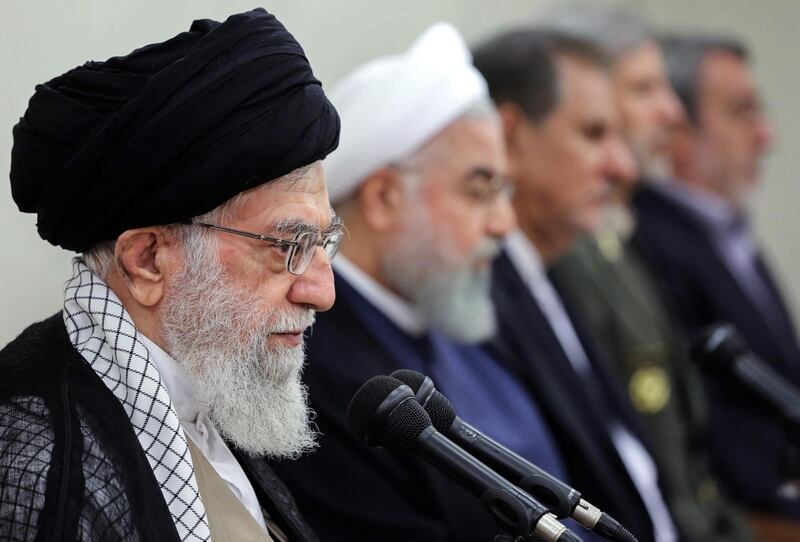Iran's intelligence minister said "dozens of spies" had been arrested as part of a crackdown on espionage and dual nationals and alluded to an agent Iran had placed inside the Israeli government, Iranian media reported on Wednesday.
Intelligence Minister Mahmoud Alavi did not provide details of the "dozens of spies", or over what period they had been arrested in the interview televised late on Tuesday.
He said Iran had planted the agent "in the cabinet of a country that has a very strong intelligence service".
The conservative Tasnim news agency said this was a reference to Gonen Segev, a former Israeli energy and infrastructure minister who was charged with spying by a Jerusalem court last month.
Israel and Iran have long waged a shadowy counter-intelligence war against the other. Israel is bidding to thwart Iran's nuclear ambitions while Tehran regularly speaks of destroying Israel.
"Financially and through other means, our enemies try to get information on our country," Mr Alavi said in the interview.
"They act by spying and infiltration. Fortunately the anti-espionage section is one of the strongest sections of this ministry."
The minister said there was also a concerted effort to root out dual nationals working in official positions.
"If you know anyone, tell us about them," he said.
The crackdown comes after US President Donald Trump pulled out of the landmark nuclear deal in May, reimposing a slew of sanctions on Tehran's economy. Washington says it reimposed the sanctions to prevent Iran the funds to promote terrorism in the Middle East, as well as restricting its missile programme.
Mr Alavi also spoke of the threat from the Sunni Muslim extremists of ISIS, which regards Shiite-majority Iran as one of its main enemies in the region.
_______________
Read more:
Inside Iran's disinformation campaign on the West
Google takes on alleged Iranian influence campaign
Facebook and Twitter say Iran propaganda pages deleted
_______________
He said 230 "terrorist cells" had been intercepted over the past year.
"We foiled plots on places such as universities and the metro but we published little information about this," Mr Alavi said.
ISIS carried out a multi-pronged attack on Iran's parliament and the shrine of revolutionary leader Ruhollah Khomeini in June 2017 that killed 17 people.
Mr Alavi also talked about a crackdown by the authorities on corruption and those manipulating Iran's chaotic currency rates, which have been a major focus of discontent in recent months.
"If we want to have a dynamic economy, we must fight economic corruption. In the intelligence ministry, we have opened 130 files and more than 180 suspects have been arrested," he said.
Former Israeli minister Segev, a physician and ex-convict once jailed for smuggling 32,000 ecstasy tablets into Israel disguised as M&M's, was charged with spying for Iran and being an agent of the country's foreign intelligence service.
He was arrested in May “on suspicion of having aided the enemy in wartime and spied against the state of Israel,” the Israeli police and the Shin Bet internal security agency said in a joint statement.
The former minister was arrested after travelling to Equatorial Guinea, where he was stopped following an Israeli wanted order for his detention.
He had been residing in Nigeria before his arrest and had been in contact with Iranian officials based out of the embassy in the West African country. The former Israeli minister eventually met his handlers twice in hotels while travelling abroad.
After turning into a spy for Iran, Segev passed information to the regime on Israel's economy, security sites and diplomatic and security personnel. He also tried to cajole other former Israeli officials into contacts with Iranian agents posing as everyday businessmen. It is believed he turned because of financial woes.
Iran has agents operating across the world. Just last week, two alleged agents for Tehran were charged in the United States, which accused them of carrying out covert surveillance of Israeli and Jewish institutions on US soil.
Ahmadreza Doostdar, 38, a dual US-Iranian citizen born in Long Beach, California, and Majid Ghorbani, 59, of Costa Mesa, California, were charged with acting as illegal operatives for the Iranian regime.






